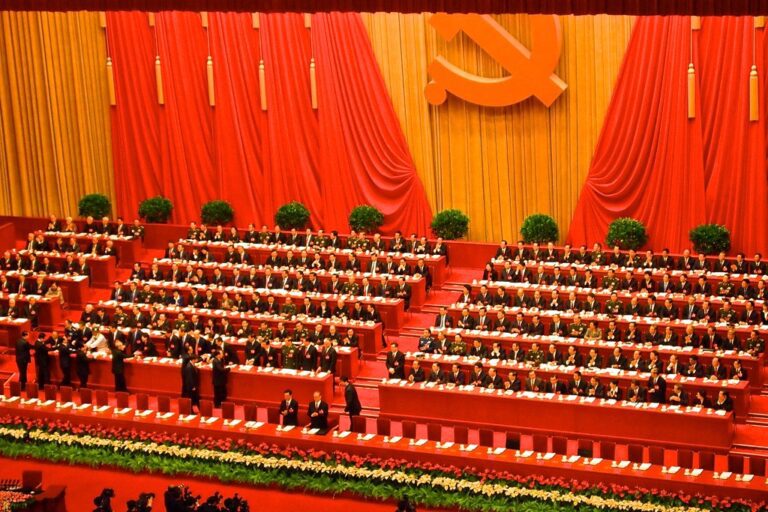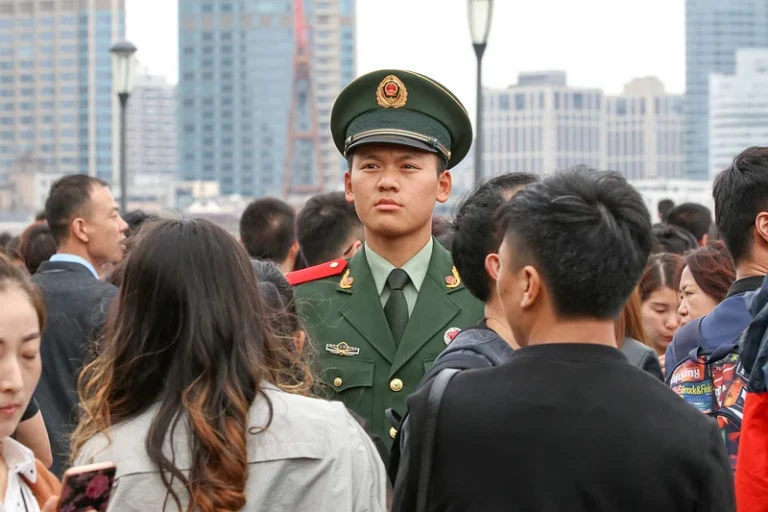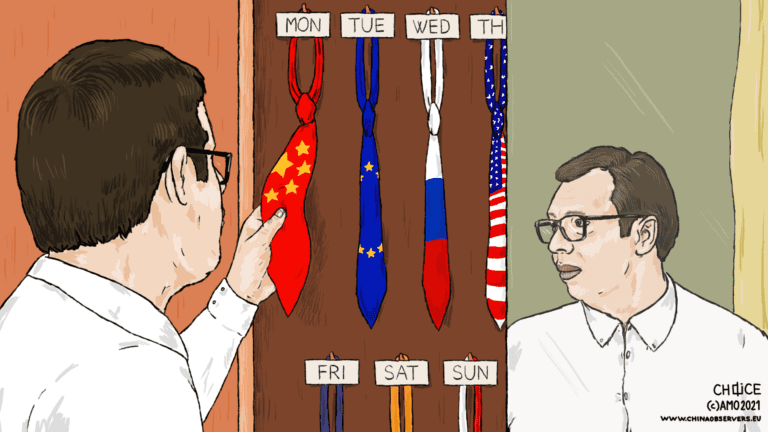
The small island country of Malta has emerged as an unlikely foothold for China’s presence in Southern Europe.
For most, Malta evokes the image of a touristic Mediterranean getaway, known for its untarnished natural landscapes, diving, architectural sites, and music, from the jazz of Notte Bianca to a recent upsurge in electronic music festivals. A member of the EU since 2004, it used to be a famed resort destination of the British Empire, of which it was a colony until 1964.
However, the “city-state on the Mediterranean,” the tenth-smallest country in the world by area, also holds a surprising amount of geopolitical potential as a strategic crossroads between Europe and Africa. Such advantages are not lost on China, which has recently cast its west-faring eye upon Malta, initiating diplomatic visits as part of the Belt and Road Initiative (BRI), stepping up economic exchanges through energy, maritime investment, real estate, and technology, as well as cultural initiatives. This has been largely welcomed by Malta, which also increasingly looks to the East.
A Maritime Gateway to Africa and the Middle East
Small but strategically situated, Malta was historically occupied by the Phoenicians, Greeks, Romans, Arabs (who left their mark on the Maltese language, a Latinised version of spoken Arabic), the French, and the British Empire who all sought to control the strategic port. Today, Malta is positioning itself towards the Asian market both as an investment target in itself and as a maritime gateway to business in Europe and North Africa. For Beijing, which has been seeking to boost its role in international maritime transport and logistic flows, Malta presents an appealing node in the Mediterranean.
Malta officially joined the Belt and Road Initiative in 2018, making it the second EU country outside of Central and Eastern Europe to do so. However, Chinese involvement in Maltese infrastructure, specifically ports, is not a new development. China helped Malta build a 300,000 ton dry dock for ship repairs in 1975, affectionately nicknamed the “Red China Dock” by the Maltese. Malta also accepted Chinese money to help fund the construction of the Malta Freeport Terminal in 1988. Since 2006, state-owned shipping companies COSCO and China Merchants Port Holdings have controlled 24.5 percent of the container port, as a part of the overall initiative to establish a network of maritime trade traversing China, South Asia, Africa, and Europe by investing in the world’s largest container ports to create an “empire” akin to ancient trading routes.
The largest currently operating transshipment hub in the country and one of the leading transshipment hubs in the Mediterranean, Malta Freeport Terminal holds over 6,248 ship registrations and hosts shipping links to 117 ports globally, including 70 in the Mediterranean and the Black Sea, and has a unique policy of open registrations to non-Maltese nationals. China is also now in talks to finance a logistics warehouse there based on the model of the United Arab Emirates’ Jebel Ali, a joint venture between DP World and China Commodity City Group (CCC) connecting Chinese factories with the Middle East.
Economic Exchanges
During the last 26 years, China’s exports to Malta have increased at an annualized rate of 17 percent, reaching a high in 2021. In the first 11 months of 2023, China exported $174 million and imported $47.8 million from Malta, resulting in a positive trade balance of $126 million. The main components of Chinese exports to Malta are passenger and cargo ships ($749 million), refined petroleum ($366 million), and trunks and cases ($61.5 million), while Malta mostly exports electronics and plastics to China, since the island is a popular destination for foreign companies that specialize in high-tech products such as electronics and precision engineering.
Cooperation in energy and infrastructure is the most notable. In energy, the state-owned company Shanghai Electric Power holds 33 percent of the Maltese utility company Enemalta, since a deal inked in mid-March 2014. This agreement, worth €320 million, slashed Enemalta’s debt by nearly half. Framed in terms of the internationalization of the company, it also included setting up a joint venture company in Malta specializing in the manufacture of photovoltaic panels to give China a foothold in the EU market as well as the ability to service plants in the Middle East and Africa. This deal raised concern in the EU in 2013 in light of the dispute over solar panels imported from China at the time. Enemalta has also been in the news for a scandal over a corruption-riddled handover of a wind farm in Montenegro where it supposedly paid thrice the real price of the purchase. The journalist who reported on the deal and other fraudulent dealings of the country’s political elite was later murdered, highlighting the dark side of the Maltese political-business nexus.
China has made major inways into Malta via telecommunications and the rapidly technologizing transportation industry. Huawei has signed a memorandum of understanding with the Maltese government to develop a 5G network on the island and has already been behind a facial recognition CCTV system in touristic hotspots and in “crime-prone villages.” Cities in Malta, like in Germany, Serbia, and the UK have established “smart-city” projects with Chinese companies.
Finally, China is a key supplier of vehicles utilized by the public bus system. The new King Long electric buses are operated here under a general initiative to introduce more electric vehicles to the island and are said to be more “resistant” than those produced by European companies, and thus suited for the “complex, narrow, bumpy” roads of the island.
A “Bridge” between China and Europe: Citizenship and Business Incentives
The Maltese government has tried to maintain close political relations with China as well, particularly under the Labor Party governments. In 1972, China offered Malta a long-term interest-free loan of $15 million to help it become more independent from the British. China’s assistance has often been used as a symbol demonstrating the traditionally close ties between the two countries. In November 2023, the Maltese Foreign Minister, Ian Borg, assured his Chinese counterpart that Malta is “China’s friend in Europe” during a visit to Beijing. At the same time, Wang Yi expressed his hope that Malta could serve as “a bridge” between China and Europe.
Indeed, the island does serve as a bridge for China in many ways. Malta has opened its doors to Chinese investors and passport-seekers via the “golden passport, golden visa” scheme, where foreign citizens can buy Maltese and EU citizenship in exchange for around €1 million of investment under the controversial program. Like Portugal, where Chinese and Hong Kong investors are investing in real estate, Malta offers an abundance of different residency options and citizenship by direct investment. It also appeals to investors looking to evade personal income tax rates of up to 45 percent in China, since its tax system is relatively free from strict regulation, favoring the establishment of companies and offering incentives to anyone who wants to set up a business.
Today, 87 percent of those who profit from the golden passport scheme are Chinese, who are the largest growing nationality on the island of expatriates. This has also been accompanied by an upsurge in companies designed to help them with the international move. The influx of Chinese investment has been lucrative for businesses, especially real estate: Maltese home prices have increased by 26 percent in five years, with experts predicting further growth in the economy. Yet, the EU Commission has declared the golden visa policy to be in violation of EU law, while encouraging corruption and money laundering. This is especially concerning in the context of the past experience with the Southern Italian mafia flocking to Malta to take advantage of loose restrictions and lax law enforcement and the general tendency for Malta’s pro-business, pro-migration policies to favor the ultra-rich.
Looking Ahead: China in Maltese Eyes
The close ties between China and Malta have also been reflected in the cultural and media sphere. The China Cultural Centre was established in Malta in 2001 as one of the first Chinese-operated centers combining linguistic, cultural, and artistic programs in Europe. Degrees from Chinese and Maltese universities have been mutually recognized since an accord in 2013, while language instructors at the Confucius Institute at Malta University, established in 2009, teach locals Chinese. Other Chinese soft power initiatives have gained headway through the construction of the Chinese Serenity Garden and the translation of Chinese literature. One notable example, the co-authored publication China in Maltese Eyes, exhibited at the National Museum of Archaeology in Valletta, collates anecdotes from Maltese and Chinese travelers to remark upon the shared cultural values of the two differently sized countries, going back to their archaeological heritage and status as ancient civilizations – as well as the fact that Malta, which had been under Arab rule, is a bit “oriental” like China itself.
Studies on discourse and communication have shown that the coverage of the Maltese media tends to be shaped by “Chinese perspectives.” Exemplifying this, the Times of Malta, the most widely circulated newspaper, which leans right, publishes articles that are almost exclusively pro-Chinese as well as official Chinese statements and mentions the CCP only in laudatory overtones.
As the BRI reaches its tenth anniversary, other observers have suggested that a critical evaluation of its impact and China’s broader interests is in order. Italy’s recent exit from the BRI under the right-leaning Prime Minister Giorgia Meloni in the winter of 2023 raises the question of whether China has lost a key ally in Southern Europe. While it can hardly replace Italy, Malta, the glittering jewel of the Mediterranean, with its strategic and historical maritime connection to Europe and North Africa, sympathy to the “East,” and convenient residency policy, can still provide China with a firm footing in the region.
Written by
Melanie Shi
Melanie Shi is a postgraduate student at the EHESS (School of Advanced Study) in Paris, France, where she is working on a historical project about the afterlife of Maoism in the 1960s and is interested in China’s relations with the global ex-socialist bloc.


